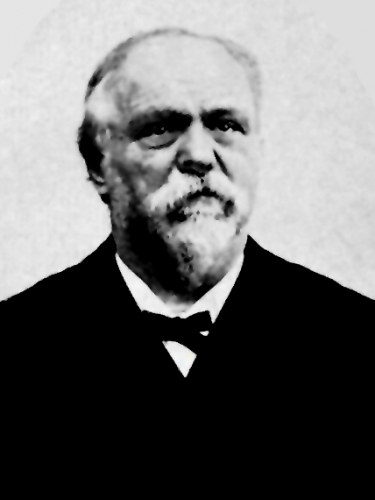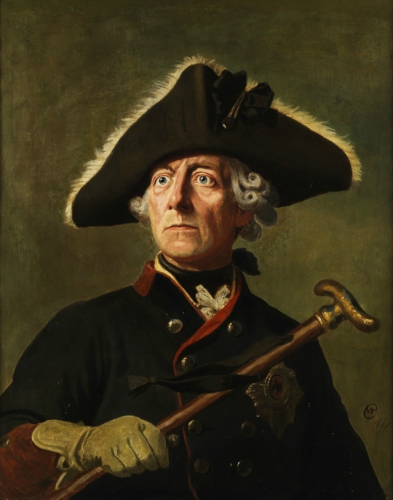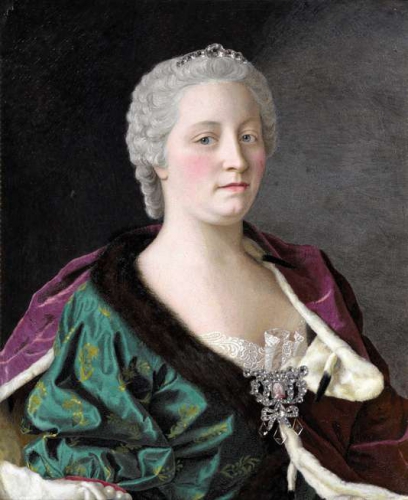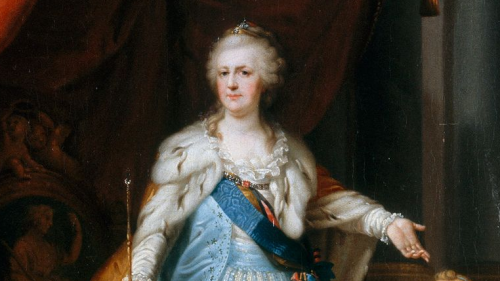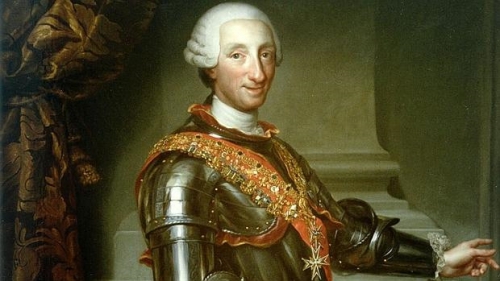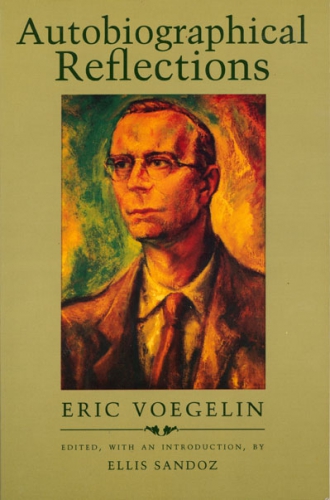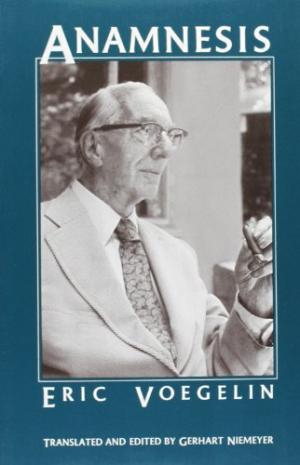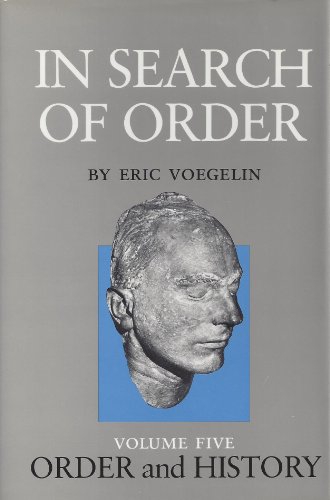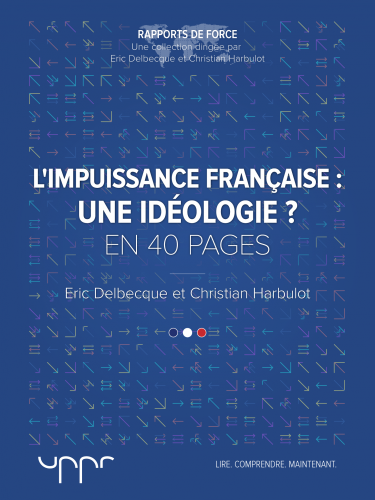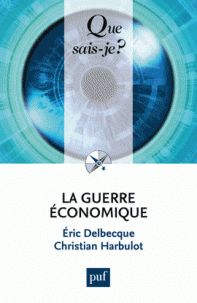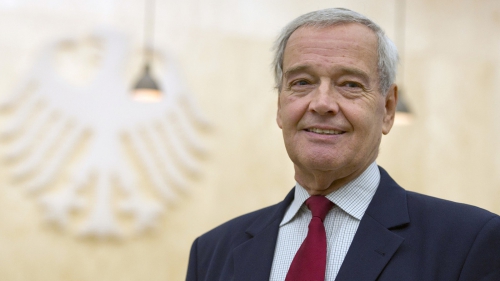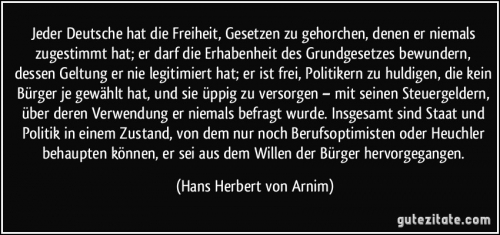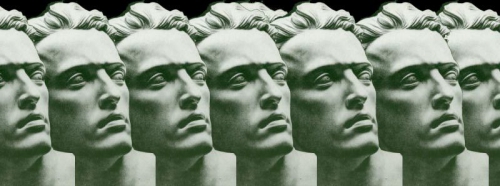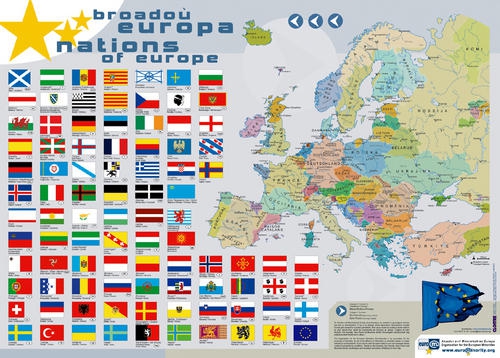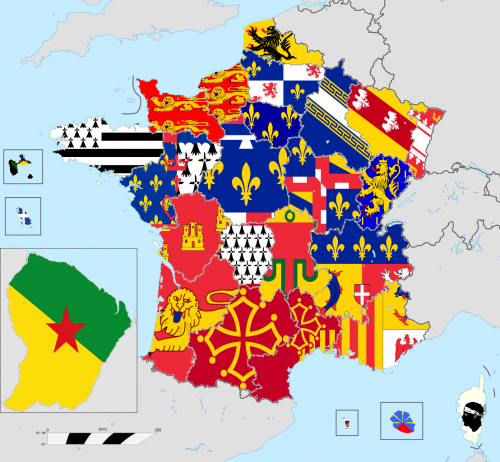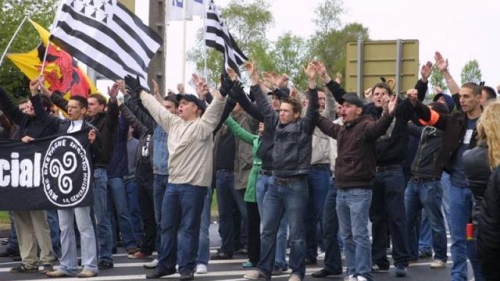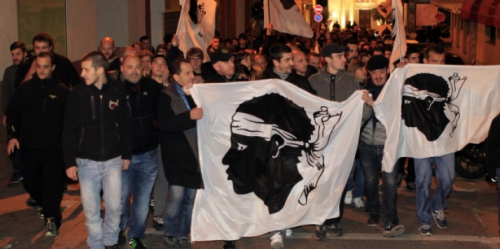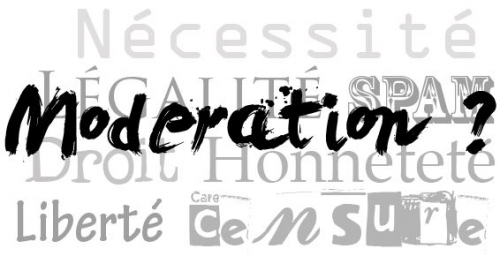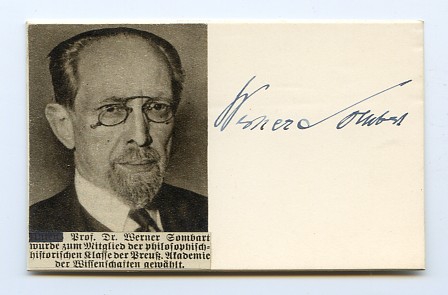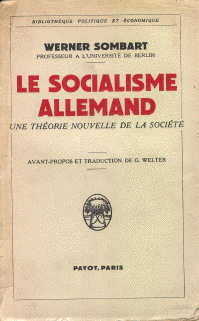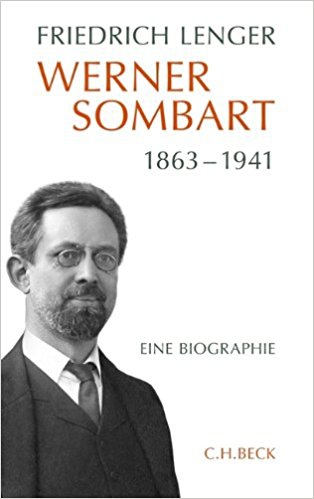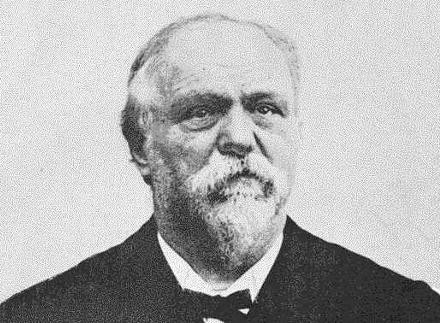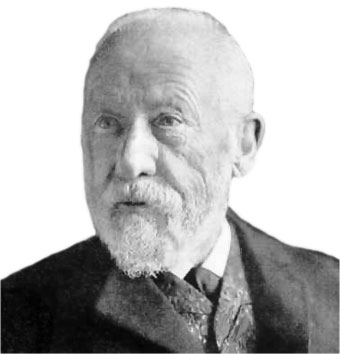Avertissement d' "euro-synergies": ce texte émane d'une voix de gauche qui s'oppose à l'utilisation par les populistes de gauche de l'oeuvre de Carl Schmitt. Nous affichons cet article pour montrer les arguments de cette gauche radicale qui refuse aujourd'hui, pour de bonnes et de mauvaises raisons, les théories émises par les idéologues de Podemos ou d'autres mouvements postmarxistes.Nous supposons que nos lecteurs pourront faire la part des choses: rendre à Marx ce qui revient à Marx, à Gramsci ce qui revient à Gramsci et à Schmitt ce qui revient à Schmitt. Coïncidentia oppositorum !
* * *
Le "populisme" est à la mode. Voici quelques mois, beaucoup d'adhérents de la "France insoumise" s'insurgeaient contre l'emploi de ce terme à l'égard de leur mouvement, croyant qu'il s'agissait de les amalgamer au Front National, dans la continuité des attaques que nous tous, militants de gauche opposés aux normes de la dite "construction européenne", avons eu à connaître depuis des années. Mais ils ont fini pour la plupart d'entre eux par réaliser que leur chef se réclame du dit "populisme" depuis un certain temps déjà, en tant qu'axe stratégique pour les présidentielles puis pour son mouvement, et leur réponse a changé : elle consiste à dire que les critiques ignorent la profondeur analytique et conceptuelle de la chose, laquelle renvoie aux oeuvres de deux supposés grands penseurs, l'un, décédé, l'argentin Ernesto Laclau, l'autre étant l'universitaire belge Chantal Mouffe.
Un petit livre (rouge ! - aux éditions catholiques du Cerf) est devenu le bréviaire de pas mal d'entre eux, et il est vrai que Construire un peuple, Pour une radicalisation de la démocratie, entretiens entre la théoricienne du "populisme" C. Mouffe et son principal promoteur dans Podemos (1), Inigo Errejon, est réussi au point de vue de la vulgarisation : il donne une version abrégée des conceptions principales de ce courant. Il me servira donc ici de point de départ pour une rapide analyse de ses principaux aspects idéologiques.
Chantal Mouffe et l'essentialisme.
Chantal Mouffe présente comme le résultat de profondes recherches sociologiques et politologiques un certain nombre de truismes que le bon sens connaît fort bien depuis toujours : "les identités politiques ne sont pas données, elles ne répondent pas à une nature par essence, mais sont constamment en construction." Ces formules s'opposent, selon elle, au "marxisme" et aux "marxistes" ainsi qu'à la "social-démocratie". La grande critique du "marxisme" à cet égard a été faite par elle-même et Ernesto Laclau en 1985 dans Hégémonie et stratégie socialiste (2). Le "marxisme" avait "une conception essentialiste qui faisait de l'existence des identités politiques le préalable à leur articulation dans le discours.", à savoir : "un "essentialisme de classe", dans lequel les identités politiques dépendaient de la position de l'acteur social dans les rapports de production, rapports qui déterminent sa conscience."
Dans un premier temps on pourrait penser qu'est visé le déterminisme économique, à l'oeuvre notamment dans le "marxisme" officiel de la seconde Internationale au début du XX° siècle , repris sous une forme aggravée dans les formulations idéologiques liées au stalinisme, déterminisme qui peut s'autoriser de telle ou telle formule de Marx mais certainement pas de l'ensemble de son oeuvre. Seuls deux "marxistes" trouvent grâce aux yeux de C. Mouffe, en tant qu'"hérétiques" supposés et pas en tant que "marxistes", Gramsci et Lukacs. Qu'aussi bien chez Lénine que chez Trotsky ou Rosa Luxembourg la place de l'action politique consciente contredise explicitement tout déterminisme économique semble lui avoir échappé (cette pauvre R. Luxembourg avait bien fait quelques efforts, explique-t-elle, mais "sans y arriver vraiment" !).
Le déterminisme économique, en fait, n'est en rien la cible de Chantal Mouffe. Ce n'est pas tant la supposée "dépendance" de l'identité politique envers les rapports de production qui est appelée par elle "essentialisme", ni une formation de la conscience qui serait directement conditionnée par la place de l'individu dans ces rapports. Ces visions schématiques "marxistes" ne font que lui faciliter la tache, mais ce ne sont pas elles qu'elle vise. C'est la relation entre rapports sociaux et identités politiques, c'est l'idée que les forces politiques correspondent évidemment à des intérêts sociaux pas forcément immédiatement conscients, qui est taxée d' "essentialisme".
Il nous faut faire une petite parenthèse sur ce terme. C. Mouffe en effet, procède à une inversion – Marx aurait peut-être dit : une inversion idéologique ! - dans son emploi.

Qu'est-ce que l' "essentialisme" ? Depuis Aristote on oppose l'essence d'une chose à ses accidents, mais ceci n'est une opposition que pour les interprètes superficiels - déjà chez Aristote, le nécessaire n'existe pas sans le contingent ni l'essence sans les accidents. La véritable opposition est celle du nominalisme et de l'essentialisme et elle a été exposée et explicitée notamment par les biologistes. "Le chat a des poils parce qu'il est un mammifère" est une proposition banale, essentialiste sans le savoir : le concept de mammifère ne préexiste pas ontologiquement aux individus (3). Dans une démarche scientifique, reposant sur le réalisme – le monde existe indépendamment et antérieurement à ma perception -, il faut se garder, avec une vigilance en éveil, de tout essentialisme, de toute conception centrée sur une norme idéale, de toute confusion entre science et valeur.
Une très belle critique de l'essentialisme se trouve sous la plume de Marx, dans la Sainte Famille (1844) : à la pomme et à la poire réelles que je mange, est substitué le concept de fruit, et pomme et poire deviennent des manifestations du "fruit absolu", chaque chose individuelle devenant l'incarnation d'une abstraction, d'une essence.
L'essentialisation, explicite ou implicite, de l'adversaire ou du contradicteur, est un phénomène courant qui constitue le principal obstacle aux débats argumentés : untel dit ceci parce qu'il est cela, un "marxiste", un "libéral", ou, pire, en raison de sa "nature", de classe, ethnique, de genre, etc (la pensée essentialiste est obligatoire dans le racisme). Ceci évite ou empêche de considérer ce que dit effectivement untel. La critique de l'essentialisme recoupe donc la critique de l'idéalisme et de l'institution d'abstractions figées à titre de modèles explicatifs, mais elle va au delà car elle critique aussi l'explication essentialiste des pensées, opinions et identités elles-mêmes : elle permet un matérialisme non dogmatique.
Il s'agit de rompre avec la classe ouvrière.
Ce que C. Mouffe, elle, dénonce comme "essentialisme" constitue précisément le contraire de l'essentialisme, à savoir le fait d'écarter les explications toutes faites sur les idées des uns et des autres par la référence à un quelconque mot en "isme" permettant de les classifier dans des catégories figées, pour pouvoir accomplir l'effort de prise en compte des réalités sociales et individuelles (les deux allant toujours de pair), des rapports matériels des individus entre eux et avec le monde, non pour ériger ces rapports en une nouvelle "essence", mais pour approcher au plus près la réalité concrète mouvante et contradictoire. Elle essentialise, par contre, le "marxisme", et avec lui la "social-démocratie", leur adressant ce reproche central qui pour elle résume, en fait, leur soi-disant "essentialisme" :
"Leur théorisation était différentes, mais finalement les deux courants ["marxisme" et "social-démocratie"] abordaient le socialisme en fonction des demandes de la classe ouvrière." (je souligne, VP).
La "social-démocratie", ce sont les partis socialistes, social-démocrates, travaillistes, ayant largement dérivés vers le libéralisme. Le "marxisme", c'est ici ce qui est censé s'être situé "à gauche" des précédents, soit, principalement, les partis communistes et apparentés. Pour Chantal Mouffe leur grand défaut était de procéder "en fonction des demandes de la classe ouvrière" (sic). Althussérienne orthodoxe jusque là (et peut-être bien réelle "marxiste essentialiste" ! ), elle aurait pris conscience du problème en raison de son engagement féministe londonien. Sans doute. On notera la double essentialisation a-critique à laquelle elle procède.
Premièrement, les forces politiques issues de la social-démocratie et du stalinisme (qu'il soit permis d'appeler ainsi les catégories essentialisées de C. Mouffe que sont "la social-démocratie" et "le marxisme", on se rapproche ainsi, d'un cran, du réel), représentaient bel et bien la classe ouvrière, et c'est bien là, deuxième point central, ce qu'il leur est reproché.
Exit tout questionnement sur la bureaucratie, la confiscation de la représentation, l'Etat "soviétique", etc. C. Mouffe en rompant avec ce qu'elle considérait comme son "marxisme", n'a pas à faire l'effort de critiquer le rapport politique de subordination et d'instrumentalisation, ni donc de se questionner sur les forces sociales en jeu, des appareils social-démocrates et "communistes" issus du stalinisme, avec la classe ouvrière. Non : le problème, c'est la référence à la classe ouvrière.
Pas de rupture avec les vieux partis en tant qu'appareils bureaucratiques, mais une rupture réelle avec toute référence à la classe ouvrière, et donc avec le mouvement ouvrier. La "critique de l'essentialisme" joue là le rôle classique d'une couverture idéologique : la conscience est proclamée autonome, les classes n'existent pas, donc inventons. Rompre avec "l'essentialisme" voulait dire rompre avec la classe ouvrière. Inventons ! Inventons quoi ? Le "populisme".
Voici le Populisme !
Le populisme fut ainsi défini par Ernesto Laclau dans La raison populiste :
"Un mode d'articulation opérant selon une logique équivalentielle, qui aboutit, par un enchaînement d'équivalences entre une multiplicité de demandes hétérogènes, à créer un peuple."
Sous ce verbiage impressionnant, voire intimidant, on pourrait penser qu'on a une démarche pragmatique assez simple, voire cynique, somme toute :
"L'idée des néo-populistes, c'est d'allier des luttes locales et a priori sans lien, comme par exemple celle pour le mariage homosexuel et celle contre la construction d'un aéroport et celle contre la fermeture d'une école maternelle. Chaque lutte possède un ennemi local (les cathos intégristes, les promoteurs immobiliers, la mairie de droite). Plus on agrège des luttes ensemble, moins ce qui "nous" relie a de substance, mis à part celle d'être en lutte contre une série d'ennemis tout aussi protéiformes. On a donné le nom de peuple, ou "les gens", pour décrire le nous, et celui des élites pour décrire l'ennemi. Ça permet de mobiliser toutes ces luttes dans un front large. Donc c'est pas si compliqué que ça, la formule est pas si obscure que ça en contexte, la stratégie fonctionne pour gagner des élections (voir Syriza, Podemos, Revolution Ciudadana) en évitant la fragmentation qui caractérise la gauche de la gauche depuis longtemps." (je recopie ici une intervention dans un débat sur Facebook).
Mais aucun des exemples donnés ici, et on pourrait en ajouter d'autres, ne s'est construit en réalité de cette manière. En ce qui concerne Podemos, il y a eu initiative politique d'un groupe, dans le contexte créé par les mouvements massifs d' "indignés" occupant les places publiques en 2012, mais il ne s'agit pas de l'expression politique directe de ce mouvement, ni de la fédération de luttes "sans lien entre elles". C. Mouffe et I. Errejon sont pleinement d'accord et se félicitent du fait que "l'initiative de Podemos est lancée sans aucune forme de consultation préalable entre les mouvements, ni les assemblées, ni avec les indignés." Il ne fallait surtout pas soumettre cette initiative à la discussion ! Le mode d'articulation dont parle Laclau n'est pas la fédération démocratique de mouvements divers. Au demeurant, ces mouvements étaient déjà articulés dans le 15M et les Indignés, précisément parce qu'ils n'étaient pas sans liens entre eux, mais que tous étaient des réactions sociales aux attaques capitalistes – "essentialisme" "marxiste" ! La question de leur représentation politique se posait publiquement, ouvertement, en Espagne depuis 2012. Comme l'avoue très franchement Errejon, Podemos en tant que mouvement "populiste" n'a pas été pensé et fondé pour assurer démocratiquement cette représentation. De fait, il n'aurait pas agi autrement si l'intention avait été de court-circuiter et de confisquer cette représentation le plus vite possible (4).
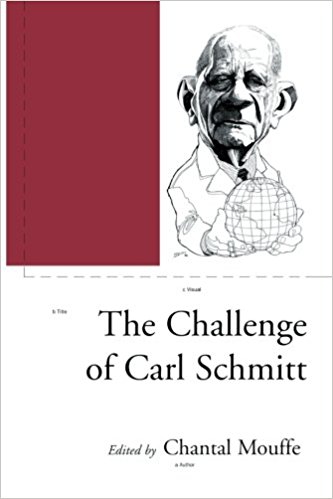
Les modes idéologiques actuelles à l'extrême-gauche ne facilitent pas, il est vrai, la compréhension critique de ce dont il s'agit réellement là. Ainsi, le terme d' "intersectionnalité" peut être facilement combiné aux "modes d'articulation" à la Mouffe-Laclau. Rien n'existerait "par essence", ni classes, ni genres, ni nations, tout serait "construction sociale et langagière", croyance qui constitue justement le plus sûr moyen de faire de l'essentialisme réel, celui que critiquait Marx il y a un siècle et demi, et que critiquent les biologistes aujourd'hui : cataloguer des "ismes" et des "phobies" les uns à côté des autres ("classisme", "sexisme", "homophobie", "islamophobie", "spécisme" ... (5)) en éclatant toute compréhension unifiée de la société et des rapports de production, ce qui permet éventuellement d'y faire son marché et de choisir son "isme" et sa "phobie" (6).
Au fond, Laclau et Mouffe ne font-ils pas de l' "intersectionnalité" ? Certes, mais avec un petit quelque chose de plus assez éclairant sur les confusions possibles autour de cette notion.
Deux termes clefs sont présents dans la formulation fumeuse de Laclau citée ci-dessus. Les "demandes" sont "hétérogènes", ce qui peut vouloir dire plus encore que sans lien apparent (mais avec un lien social sous-jacent), comme présenté ci-dessus par l'intervenant sur Facebook. Elles peuvent être, même, et elles le sont chez Laclau – comme elles l'étaient dans le mouvement politique qui a toujours été le sien : le péronisme de gauche – contradictoires, opposées.
C'est-à-dire, en termes soi-disant "essentialistes", qu'elles peuvent émaner de groupes sociaux aux intérêts opposés. Le "mode d'articulation" façon Laclau associe des intérêts opposés. Et il les associe dans "un peuple", seconde notion clef.
Combinons tout cela : il s'agit d'unir des intérêts sociaux opposés dans un seul et même "peuple". Dit comme cela, c'est certes beaucoup moins original ...
"Nous" contre "Eux".
Chez Laclau, ce dont il vient d'être question est la plupart du temps présenté comme une description des pratiques socio-politiques effectives, surtout dans des sociétés destructurées par le néolibéralisme comme celles d'Amérique du Sud, plus que comme une méthode préconisée pour construire des organisations politiques de masse. De Peron à Christina Kirchner, présidente néo-péroniste de l'Argentine qui lui rendra un hommage appuyé à sa mort en 2004, en passant par Chavez, Morales, Correa ..., mais aussi des rassembleurs de "droite", voire néolibéraux comme Fujimori au Pérou, le "mode d'articulation" à la Laclau a pu être fréquemment identifié, au point de friser la banalité sans contenu.
Mouffe entend, sur ces fondements, définir une manière de "produire du politique" expression synonyme ici du "construire un peuple" de Laclau : "Il me paraît fondamental de comprendre que la politique consiste à créer un "nous" et que ça implique nécessairement de le distinguer d'un "eux". Le sujet politique collectif (le "peuple") se constitue en désignant, en affrontant, en détestant, un ennemi : c'est ce qui fait son identité, puisque lui-même est formé de groupes aux intérêts hétérogènes voire opposés. L'ennemi est perçu comme celui qui vous fait du mal, mais sa définition ne doit pas être "essentialiste", comme de bien entendu : il n'est donc pas défini, mais décrit, et ne sera donc pas forcément, un groupe exploiteur et/ou oppresseur. Juste un ennemi.
Nous touchons là à l'apport plus propre à C. Mouffe. Elle a péché cette brillante trouvaille chez un illustre "penseur du politique" : Carl Schmitt. Il est permis de dire, l'ignorance ne servant de rien à personne (Spinoza), que chez Carl Schmitt, le "nous" était le Volk germanique, le "eux" la juiverie internationale (7). Carl Schmitt était le principal théoricien du "politique" et du droit, ou du non-droit, de l'Etat national-socialiste allemand entre 1933 et 1945. Certes, on ne saurait voir là une sorte de principe de contre-autorité qui interdirait d'étudier ou de se servir de Carl Schmitt. Il faut l'étudier, mais sans être dupe. Or, dans Construire un peuple, C. Mouffe, I. Errejon et l'éditeur évitent soigneusement d'informer le lecteur de ces données élémentaires sur le supposé grand penseur dont il est ici question. N'ayons pas la naïveté de croire qu'ils ont supposé les lecteurs tous assez cultivés pour savoir de qui il retournait. La jeune lectrice ou le jeune lecteur "insoumis" pourra facilement s'imaginer que Carl Schmitt était un grand "critique du libéralisme", et l'ignorance à cet égard se manifeste même chez de possibles lecteurs d'un âge plus canonique (8).
Le leader charismatique.
L'addition d'intérêts hétérogènes construit "un peuple" en se définissant comme un "nous" contre un "eux", et en se rassemblant autour de la figure d'un chef charismatique :
"Pour créer une volonté collective à partir de demandes hétérogènes, il faut un personnage qui puisse représenter leur unité, je crois donc qu'il ne peut pas y avoir de moment populiste sans leader, c'est évident." - un leader "charismatique".
Un peuple, un ennemi, un leader !
Sa relation à la base est autoritaire dans le cas du "populisme de droite" – et de mentionner Marine Le Pen. Mais il peut y avoir "un autre type de relation, moins vertical" ... sans plus de précisions, et l"horizontalité insoumise" en la matière n'a convaincu que les convaincus ...
Pour appuyer ces propos de C. Mouffe, I. Errejon pense opportun de citer le dirigeant anarchiste espagnol Buenaventura Durruti. L'exemple, comme le seraient tous les exemples pris dans l'histoire du mouvement ouvrier à l'exception partielle de Ferdinand Lassalle, est mal choisi, car ici la lutte commune (et non les "demandes hétérogènes" !), et l'organisation, préexistent au dirigeant reconnu comme tel. Dans le schéma "populiste" le chef est au contraire un identifiant nécessaire et donc préalable, puisque les "demandes" sont "hétérogènes" : la figure du chef et la figure de l'ennemi sont l'une et l'autre indispensables.
L'agonisme "démocratique".
Parvenu à ce stade, le sympathisant du "populisme" ou du "populisme de gauche" s'estimera sans doute en droit de protester :
"Vous êtes en train de nous tailler un costard qui suggère fortement que des mouvements comme la France insoumise sont des hordes fédérées par un Chef, contre une représentation de l'Ennemi, visant à fonder un Peuple dans lequel des intérêts – des intérêts de classe - hétérogènes, coexistent. Vous êtes en train de nous faire croire que c'est comme Mussolini. Mais vous mentez, car C. Mouffe dit bien qu'elle pense "avec et contre" Schmitt, sa vision du politique se situant dans le cadre de la démocratie pluraliste. Aucun confusion avec le fascisme n'est donc permise."
Il est exact que, à ce stade, les caractéristiques énumérées se prêtent fort bien à la description du fascisme lors de son émergence. Précisons toutefois que je ne me suis pas livré ici à un exercice autre que l'analyse du discours des théoriciens du "populisme" sur lui-même. Ni Podemos, ni la FI, ni le M5S italien, n'ont été ici analysés en eux-mêmes par leur place dans les rapports sociaux et politiques réels (de manière "marxiste essentialiste" !). Nous en sommes encore à l'analyse du discours et de la théorie. Et il est vrai qu'à ce stade, c'est en effet assez "inquiétant" !
Mais rassurons-nous donc, C. Mouffe, qui "pense" avec C. Schmitt, ne préconise pas de détruire quelque ennemi que ce soit par la violence, mais seulement d'instaurer temporairement, par la voie des urnes, une "hégémonie" nouvelle. Elle prend soin de distinguer l'antagonisme de Schmitt de ce qu'elle appelle l'agonisme de la démocratie pluraliste, qu'elle entend donc préserver. Nous voila rassurés ... mais "pensons" un peu, nous aussi, "avec et contre" C. Mouffe !
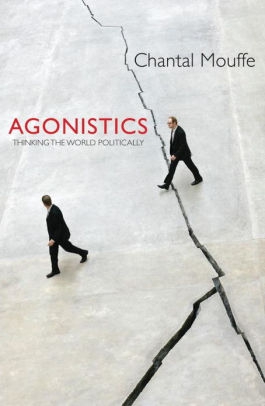
L'agon, c'est la compétition chez les citoyens grecs de l'Antiquité, fort conflictuelle, mais se situant dans le champ de la confrontation politique, rhétorique ... ou sportive. Il ne devait pas dégénérer en stasis, en guerre civile - mais c'est arrivé, souvent. La joute politique agonistique fait vivre la démocratie dans la cité en donnant forme aux conflits, sans jamais détruire la cité, ce qui se produit lorsque l'un des groupes en compétition – le démos, l'aristocratie, les nouveaux riches ...- entreprend de faire prévaloir radicalement ses intérêts. Pour être précis, l'agon évite d'entrer dans la voie de la réalisation du partage des terres et de l'abolition des dettes, ces deux revendications révolutionnaires du monde antique et au delà, qui s'accompagnent souvent, qui plus est, lorsque tel ou tel groupe entreprend de les satisfaire, de la libération collective d'esclaves. Historiquement l'exemple romain est intéressant : vers 130-120 av. J.C., les Gracques, voulant restaurer un corps civique étrillé par les inégalités, sont entrés dans la voie du partage des terres et de l'abolition des dettes. Leurs adversaires aristocratiques ont déclenché contre eux les guerres civiles romaines, au nom de la préservation de la république, conduisant à sa liquidation après des décennies de guerres généralisées dans toute la Méditerranée. L'ordre agonistique a été sauvé de la révolution sociale ... au prix de sa disparition. La compétition politique a disparu, remplacée par les joutes de rhéteurs et les jeux du cirque.
Le sens précis de la démocratie pluraliste maintenue par la confrontation agonistique, mais non antagonique, selon C. Mouffe, est que jamais le cadre social de celle-ci, que serait le capitalisme, ne prendra fin. I. Errejon enfonce le clou : le "libéralisme" veut mettre fin au conflit et donc à la politique, et le "marxisme" veut abolir "la contradiction capital-travail", passant à des "sociétés sans politique". Donc : si nous voulons préserver la politique, n'abolissons pas la contradiction capital-travail (on comprend mieux que le populisme soit disposé à être tout ce que l'on voudra, sauf une organisation de classe).
Qu'il y ait là une réaction contre de nombreux discours "marxistes", et aussi utopistes ou anarchistes, annonçant une société sans classe, ni Etat, ni politique, sans doute. Mais enfin, nous avons affaire à des gens qui se prévalent de leur capacité à "penser", et à "penser" "avec et contre", s'il vous plaît ! La notion d'"agonisme" opposée à "antagonisme" provient, disions-nous, des anciens Grecs, chez lesquels il n'y avait pas de "contradiction capital-travail". Preuve qu'on peut avoir de la "politique" sans celle-ci, non ? Que le réglement de cette contradiction là doive mettre fin au politique, au débat, aux confrontations d'intérêts, d'idées et d'objectifs, demanderait à être démontré, et ne l'a jamais été (y compris par ceux qui souhaitaient cette eschatologie). En somme, C. Mouffe et I. Errejon, ces "post-marxistes", conservent précieusement par devers eux une croyance, et une seule, de l'ancien mouvement ouvrier : celle selon laquelle en finir avec le capitalisme mettrait fin à la politique. Peu importe qu'ils tiennent la chose pour impossible ou pour dangereusement possible, le résultat est le même, puisque cette croyance devient chez eux un repoussoir. Au service d'une orientation politique précise : en finir avec le mouvement ouvrier, ne plus représenter d'intérêts de classe, unir des intérêts de classe opposés, et donc, préserver le capitalisme.
Or, il se trouve que le compère Carl Schmitt, sur ce point, était tout à fait d'accord. La contradiction capital-travail n'était pas son sujet et il entendait clairement maintenir le capitalisme. Sauf que chez lui, l'union du "peuple" sous un "chef" contre un "ennemi", maintenant au passage le capitalisme, détruisait sans états-d'âmes la démocratie pluraliste et même libérale. Cela s'appelait, permettons nous encore l'impolitesse de le rappeler, le national-socialisme, abrégé en nazisme, n'est-ce pas.
Aucun doute sur le fait que C. Mouffe est pour la démocratie pluraliste et donc qu'à ce titre, elle est bien "contre" son maître C. Schmitt. Mais démocratie pluraliste et capitalisme pour elle font bloc, sont associés. Donc, maintenir la démocratie pluraliste implique de maintenir le capitalisme, même si elle n'insiste pas trop, se contentant en général de sous-entendre ce point comme une évidence qui devrait aller de soi. Son "populisme", qui est, sinon "de gauche", en tout cas pas "de droite", se maintiendrait ainsi dans les limites d'une confrontation rigoureuse et animée, débordant la bienséance libérale, mais toujours civilisé. Pas de sang.
Qu'il soit permis d'avoir un doute, non pas sur la sincérité de l'attachement de C. Mouffe à la démocratie, mais sur le fait qu'on puisse rester civilisé en galvanisant des foules derrière un chef et contre un ennemi, tout en préservant le capitalisme. De ce point de vue, l'expérience de plusieurs gouvernements de gauche latino-américains est importante, particulièrement celle du Venezuela, qui, sous Chavez, était resté, voire véritablement devenu, une démocratie pluraliste. Mais sous Maduro ... non seulement le capitalisme, mais le paiement des dividendes aux actionnaires et créanciers impérialistes, sont préservés. Quand à la démocratie pluraliste ...
D'ailleurs C. Mouffe, devant les élans "antagonistes" d'I. Errejon qui compare la passion politique contre l'ennemi à celle des bandes de supporters d'un match de foot – une comparaison signifiante, nous y reviendrons -, lesquelles "'s'entre-tuent parfois", concède que "l'agonisme n'élimine pas l'antagonisme, c'est une façon de le sublimer." Des régimes qui "subliment" la passion de foules que l'on ne peut satisfaire sur le fond car le capital et son accumulation sont maintenus et poursuivis, il y en a eu ... et leur degré de violence, pas "antagonique" envers le capital, s'est avéré "antagonique" envers la civilisation et la culture humaines.
Nous ne sommes donc pas rassurés par la profession de foi démocrate-pluraliste "avec et contre" C. Schmitt de C. Mouffe.
Soyez quand même rassurés, notre ADN est antifasciste !
Errejon précise : "Pour nous, l'adversaire ce sont ceux d'en haut qui ont confisqué la démocratie, pas ceux d'en bas, sous prétexte qu'ils viendraient d'autres pays ou qu'ils auraient une autre couleur de peau. Ceux qui auraient ce genre d'idées, pas question de négocier ni de discuter avec eux ; pour nous, c'est une frontière infranchissable."
Avec les fascistes, racistes et xénophobes, il entend avoir des rapports "antagonistes" et pas "agoniques".
Dont acte. Mais il y a un talon d'Achille. C. Mouffe le fait ressortir elle-même. Elle explique d'abord que si "la confrontation peuple/caste" est bien de nature "agonistique", ceci signifiant clairement "qu'il ne s'agit pas d'essayer d'en finir avec la "caste" par une révolution ou un coup d'Etat" (et donc qu'il ne s'agit pas d'en finir avec elle d'une façon générale, car la "démocratie pluraliste" supposant la "confrontation agonistique" aucun des deux camps opposés ne doit être éliminé, tout au plus peuvent-ils se transformer en d'autres termes contradictoires opposés). Ces précisions étant apportées, elle demande à I. Errejon : "qui sont ceux de la caste" ?
"Leur indéfinition même fait leur pouvoir mobilisateur", répond ce dernier. Si nous étions rassurés, nous ne le sommes plus.
La "caste" et "l'oligarchie" sont les termes qui désignent, dans les trois mouvements "populistes" d'Europe occidentale, nonobstant leurs différences, que sont Podemos, la FI et le M5S, la figure de l'ennemi. Dans les deux premiers d'entre eux, peut-être même aussi dans le troisième, nul doute que ce sont les capitalistes qui sont perçus ainsi par beaucoup d'adhérents de base. L' "essentialisme" a la vie dure, forcément puisqu'il s'agit des rapports sociaux réels ... Mais dans le discours des chefs, il ne s'agit pas du capital, mais seulement de sa couche supérieure, le capital financier et boursier, lequel n'aurait pourtant aucune existence si le capital dit "productif" ne l'engendrait pas et ne recourrait pas à lui en permanence. La dénonciation de la "caste" est donc une formulation ambigüe qui se nourrit de l'existence du capital financier. Lui sont agrégés les politiciens et les gros acteurs médiatiques. Il s'agit là d'une représentation fétichisée, qui fantasme l'ennemi dans la figure du riche médiatique. Elle est indissociable des représentations traditionnelles contre la "finance cosmopolite", c'est-à-dire des représentations antisémites qui s'exprimaient ouvertement avant 1945, et à nouveau aujourd'hui dans plusieurs pays d'Europe centrale et orientale. Il est indispensable de dire et de comprendre cela pour caractériser les "populismes". En faisant ce constat, personne n'a traité I. Errejon ou J.L. Mélenchon d'antisémite. Toute tentative d'interdire que cette question soit abordée au motif que ce serait malséant, est une tentative d'interdire tout débat démocratique sérieux sur ce à quoi nous avons effectivement affaire (9).
Plus généralement la figure de l'ennemi est plastique et évolutive, ce qui semble beaucoup plaire à I. Errejon. Lui-même ne fera jamais d'un groupe ethnique ou national son ennemi, pas de doutes là-dessus. Mais la méthode de mobilisation politique qu'il théorise et promeut ne comporte en elle-même aucun garde-fou contre cela. Au contraire, en suscitant à la fois la "passion" dans la dénonciation de "la caste", sans que le but soit pour autant de transformer les conditions sociales qui fondent l'existence de la dite "caste", elle est susceptible de porter à son paroxysme passion et frustration en même temps. Dans la société capitaliste, de telles contradictions politiques ne se résolvent en général que par la désignation de boucs émissaires ne faisant pas partie du coeur de la classe dominante.
A propos du "patriotisme".
La métaphore favorite d'I. Errejon pour décrire ce que doit être la mobilisation de la foule rassemblée contre la caste est le match de foot. C'est plus qu'une métaphore : les "passions" doivent être mobilisées, explique C. Mouffe – d'autant plus qu'il s'agit d'associer des couches que leurs intérêts pourraient opposer. Dans un cadre de pensée présenté comme rationnel, le congédiement des conditions sociales concrètes en tant qu'"essentialisme" ouvre grand la porte à l'irrationnel, non pas à cet irrationnel qui est en chacun de nous, non pas aux émotions et passions d'amour et de colère qui animent évidemment tout mouvement social vivant, mais bien à l'irrationnel proprement dit, la galvanisation autour du Chef charismatique, la célébration du drapeau – I. Errejon est en quête d'un "drapeau", de l'objet -, la sensation des individus fusionnant dans le slogan, le cri, l'émulation du match. Toute une thématique de "la foule" qui remonte à Gustave Le Bon refait surface ici, qui n'est pas la même chose que la foule constituée, marchant à la lutte, faite d'individus conscients ou accédant à la conscience, de la manifestation "ouvrière", laquelle n'est pas pour autant sans chaleur et souffle.
Au final, le "peuple" qu'il s'agit de "construire" est déjà là, c'est celui des Etats-nations à défendre contre le "mondialisme" de la "caste" - cette problématique là est peut-être plus présente chez I. Errejon que chez C. Mouffe, de même que son appétence pour "la plèbe". Il me semble, dans ce cadre, significatif que les termes "patrie" et "patriotisme" soient utilisés par eux, préférentiellement à "nation". Cette évolution se retrouve chez J.L. Mélenchon, où l'idée nationale républicaine et égalitaire se mélange et fait de plus en plus place à un pathos émotionnel autour de "la patrie", terme qui renvoie à la filiation et au sol. La terre, les morts, la colline inspirée ... le sang, sont-ils si loin ?

Qu'il soit au moins permis de poser la question. Cela d'autant plus que la non mise en cause de la "démocratie pluraliste" équivaut de fait au maintien des Etats existants. En France, J.L. Mélenchon est un défenseur conséquent des intérêts impérialistes "nationaux". En Espagne, I. Errejon est gêné et contourné envers l'Etat espagnol. Mais, conséquent, il a pris la décision de l'appeler "Espagne" et de laisser de côté la question de la monarchie. Catalogne, Pays Basque et Galicie font donc partie de "l'Espagne", même si I. Errejon se réserve une marge de manoeuvre sur ces questions.
Ils ont bon dos ...
Ajoutons rapidement quelques remarques sur les références de nos penseurs. J'en ai mentionné une qui me semble de loin la plus sérieuse et la plus problématique : Carl Schmitt. Mais celui dont on aime à prononcer le nom, comme s'il était un label de pensée profonde, c'est "Gramsci". On pourrait dire que nous assistons à la mise en scène d'une essentialisation de Gramsci ...
Il est vrai que ceci n'a rien de nouveau. Dans le PC italien de Palmiro Togliatti, qu'I. Errejon invoque régulièrement comme le grand exemple passé de réussite "national-populaire", avait commencé la fétichisation de "Gramsci" au détriment de sa pensée impossible à mettre en cage, elle. C. Mouffe sait cependant très bien à quoi s'en tenir et elle a la franchise de le dire :
" ... nous reprenons son idée de "guerre de position", la lutte à l'intérieur des institutions, mais Gramsci pensait que c'était en préparation de la "guerre de mouvement", lors de la rupture révolutionnaire. Et ça, nous l'avons laissé de côté." En effet ; et de plus la "guerre de position" de Gramsci est loin de se réduire à "la lutte à l'intérieur des institutions".
Mouffe poursuit : "Un autre exemple est que le noyau central d'une hégémonie doit toujours être une classe fondamentale, et nous avons écarté cette idée."
Que reste-t-il alors du révolutionnaire prolétarien et marxiste Antonio Gramsci ? Rien, si ce n'est des expressions qui font intelligent, telles que l'assaisonnement à tout propos d'un peu de "guerre de position". C. Mouffe et I.Errejon sont ceci dit convaincus que "si Gramsci avait vécu à notre époque, il serait arrivé à une conception semblable à la notre" !
Cette affirmation nous apprend beaucoup sur la psychologie sociale (ah,"essentialisme", quand tu nous tiens ...) de Mouffe et Errejon. Le "marxisme" dont ils ont hérité dans leur jeunesse, résultat de décennies d'impasses politiques et bureaucratiques, était d'une telle fadeur que c'est sans doute un sentiment de libération intellectuelle qui les habite, et se complète d'un sentiment universitaire de supériorité, une fois qu'ils ont rompu avec leur fétiche, "l'essentialisme", et que licence leur est donner de raconter ce qu'ils veulent.
Le traitement de Gramsci est central. Nous le retrouvons avec quelques antiennes sur Hegel dont le "travail du négatif" est assimilé à la construction du peuple contre "eux" sans que jamais la négation ne s'arrête, car, c'est bien connu, il ne faut surtout pas mener la lutte à son terme. Et nous le retrouvons envers Machiavel, tantôt avec la thématique du nouveau Prince qui construit un peuple, une véritable idée machiavélienne qui conseille d'ailleurs au dit Prince de faire une révolution sociale pour cela, tantôt avec celle de la lutte agonistique des dominants et des dominés dans la cité, dont on oublie un peu vite que Machiavel la fait persister au moyen du "retour au principe" de la république, une rinovazione ou une réformation qui est à l'origine du mot "révolution", faute de laquelle la république se corrompt et meurt.
Du réformisme ?
Daniel Tanuro, dans une contribution dont je puis reprendre la plupart des termes (11), conclut ainsi sur ce supposé "populisme" :
"Il [ce "pauvre Gramsci"] doit se retourner dans sa tombe car ce que Mouffe propose est ce que la social-démocratie a prétendu faire… et qui l’a transformée en social-libéralisme. "
Je crois toutefois qu'il est nécessaire de pousser le bouchon un peu plus loin. Le réformisme était un courant du mouvement ouvrier qui préconisait une évolution progressive. Il est peu à peu devenu un non-réformisme, rallié aux contre-réformes dites libérales. Le "populisme" reprend en effet la thématique réformiste, refusant la révolution ou l'appelant "révolution citoyenne". Mais ce n'est pas une simple reprise. D'une part, il se présente comme la réponse à la corruption des vieux partis issus du mouvement ouvrier, et cette réponse consiste à "construire le peuple", au lieu de, et contre, le fait d'agir pour la représentation politique du prolétariat. D'autre part, il y met une chaleur "plébéienne", comme dirait Errejon, "patriotique", faisant appel à la notion centrale d' "ordre", qui le situe, si l'on veut faire des rapprochements historiques, non comme une résurgence du réformisme d'un Blum ou d'un Huysmans, certainement pas, mais comme un courant "néo" au sens de Marcel Déat en 1932 (12). Cela ne veut pas dire qu'on affirme qu'il finira de la même façon. Mais c'est un droit et un devoir imprescriptibles que de mettre en débat ces éléments, un droit et un devoir envers la génération de maintenant.
VP, le 24/08/2017.
Notes:
(1) Errejon est le théoricien mais pas le chef charismatique, qui est Pablo Iglesias. Il est cependant important de noter que Podemos, par rapport à la FI et au M5S, reste l'organisation qui ressemble le plus à un parti au bon sens du terme. Cela tient au fait qu'un mouvement social l'a précédé et a permis son émergence, et que des courants existent de fait en son sein, différences qui ne sont pas négligeables.
(2) Faire de l'idéologie un facteur autonome était déjà un thème central de Laclau en 1977 dans Politics and Ideology in Marxist Theory, New Lefts Books éd.
(3) Sur la critique de l'essentialisme par les biologistes de l'évolution, qui n'a rien à voir avec l'emploi de ce terme chez Mouffe, voir le Guide critique de l'évolution, sous la direction de G. Lecointre, Belin, 2009.
(4) Errejon est naturellement convaincu que si l'initiative n'avait pas été prise alors, aucune formation politique nouvelle n'aurait vu le jour. Il est vrai que les fondateurs de Podemos ont occupé le vide laissé par gauche et extrême-gauche traditionnelles. Mais il est vrai aussi que depuis 2012 la question d'une nouvelle formation politique était posée ouvertement et massivement en Espagne.
(5) Pour des raisons qu'il serait trop long de développer ici, le mot "racisme" est par contre de moins en moins présent dans ces énumérations, qui mettent à sa place notamment l'islamophobie.
(6) Le PIR (Parti des Indigènes de la République) dit rejeter l' "intersectionnalité". En fait il choisit un seul groupe ethno-religieux au nom duquel toute forme d'oppression est pour lui légitime.
(7) "Il est permis de le dire". Car, comme de longue date pour le nazi philosophe Martin Heidegger, il n'est en fait pas permis de le dire dans certains cercles et publications. Il est d'ailleurs à craindre que la mode "populiste" n'entraîne une mode des idées soi-disant profondes de Carl Schmitt, le nazi juriste.
(8) http://clubpolitiquebastille.org/spip.php?article197 Charles Jérémie écrit, pour jeter l'anathème sur mon "auvergnate" personne ("Vincent Présumey écrit beaucoup de sa bonne Auvergne, parfois des choses intéressantes."), que "Ainsi, faire découler de Chantal Mouffe, Carl Schmitt and Co un possible antisémitisme est tout à fait insensé. Imbuvable." . Que penser d'un "ashkénaze" prenant la défense de ... Carl Schmitt contre un "auvergnat"!? Il est vrai qu'on apprend dans le même article que "En France dans le mouvement ouvrier, il n’y a qu’un exemple de contamination antisémite.", celui des néos, et encore seulement à la fin des années trente ! Décidément, oui, "L'ignorance n'a jamais servi de rien à personne" (Spinoza).
(9) Tel est bien le sens de l'interdit jeté par C.Jérémie contre la soi-disant accusation d'antisémitisme envers Mélenchon, dans l'article en lien à la note précédente. "Stigmatiser me lasse", écrit-il plus haut. Il doit donc ressentir une grande lassitude.
(11)
https://blogs.mediapart.fr/jean-marc-b/blog/120817/le-mom...
(12)
https://blogs.mediapart.fr/robert-duguet/blog/040817/l-hi...
 Jean-Claude Michéa
Jean-Claude Michéa Here is what can be understood as a socialist (in Michéa’s sense of the word) comment by the Filipino writer Karlo Mikhail, discussing Barnes’ novel Flaubert’s Parrot on his blog [5]:
Here is what can be understood as a socialist (in Michéa’s sense of the word) comment by the Filipino writer Karlo Mikhail, discussing Barnes’ novel Flaubert’s Parrot on his blog [5]: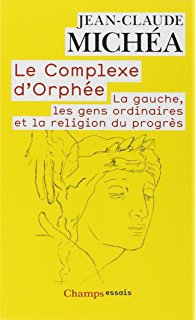 Michéa, like Marx, believes that development by internationalist capitalism acts as a centrifuge to separate the two extremes of those who possess capital from those who do not. Modern society offers increasingly fewer loyalties other than loyalty to the principle of individual competition in a free market. This is why all group adhesion and group loyalty, whether ethnic or geographic or of social class, is undermined or openly attacked by the proponents of progress. In the tradition of socialist conservatives going back to George Orwell, Michéa sees the simplification of language, the dumbing-down of society, and the failure of modern education as part of a pattern.
Michéa, like Marx, believes that development by internationalist capitalism acts as a centrifuge to separate the two extremes of those who possess capital from those who do not. Modern society offers increasingly fewer loyalties other than loyalty to the principle of individual competition in a free market. This is why all group adhesion and group loyalty, whether ethnic or geographic or of social class, is undermined or openly attacked by the proponents of progress. In the tradition of socialist conservatives going back to George Orwell, Michéa sees the simplification of language, the dumbing-down of society, and the failure of modern education as part of a pattern.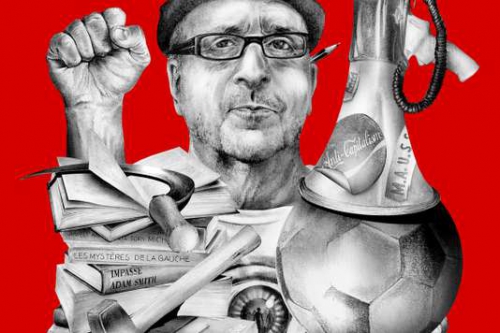





 del.icio.us
del.icio.us
 Digg
Digg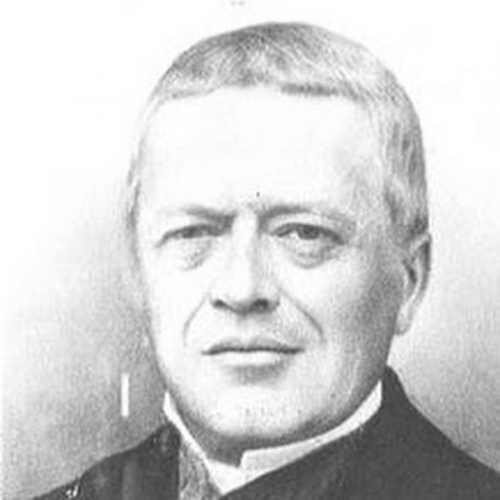
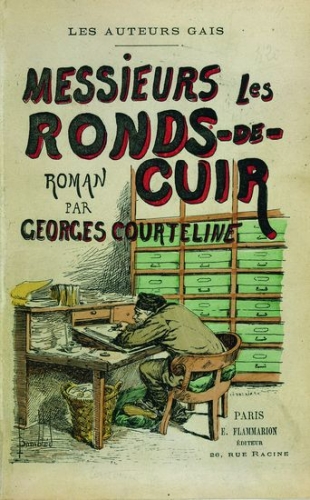

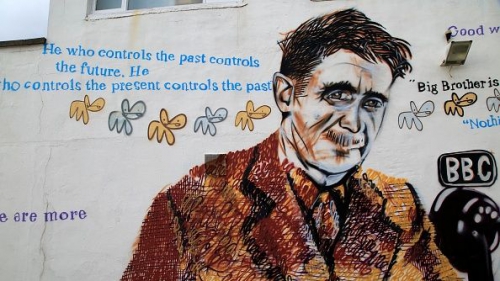
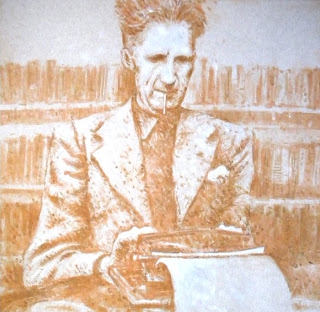
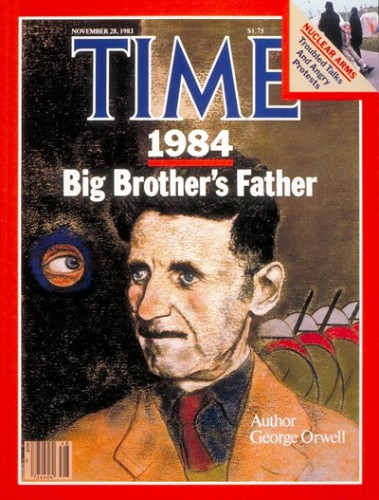
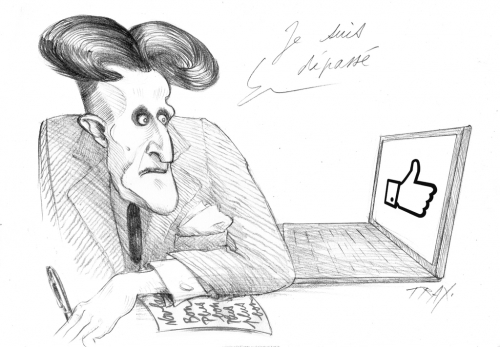
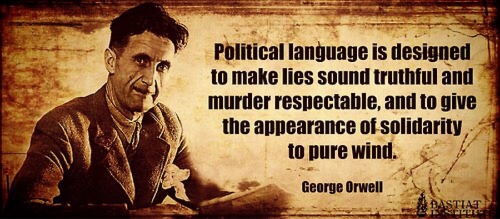
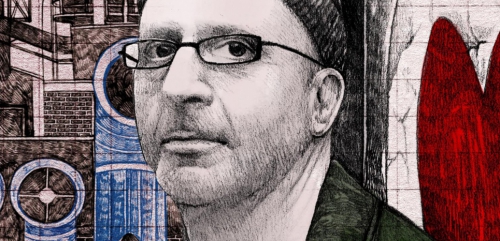
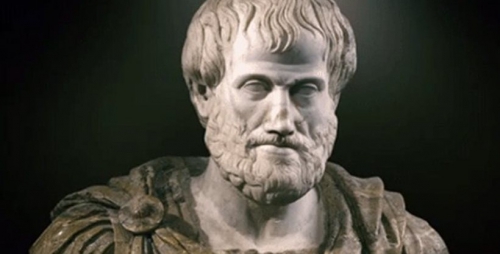
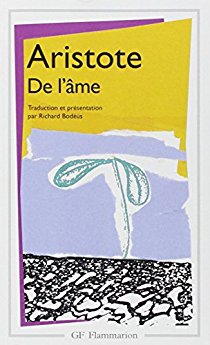 « Il est donc manifeste que la cité n'est pas une communauté de lieu, établie en vue de s'éviter les injustices mutuelles et de permettre les échanges. Certes, ce sont là des conditions qu'il faut nécessairement réaliser si l'on veut qu'une cité existe, mais quand elles sont toutes réalisées, cela ne fait pas une cité, car [une cité] est la communauté de la vie heureuse, c'est-à-dire dont la fin est une vie parfaite et autarcique pour les familles et les lignages » (Politiques, III, 9, 6-15).
« Il est donc manifeste que la cité n'est pas une communauté de lieu, établie en vue de s'éviter les injustices mutuelles et de permettre les échanges. Certes, ce sont là des conditions qu'il faut nécessairement réaliser si l'on veut qu'une cité existe, mais quand elles sont toutes réalisées, cela ne fait pas une cité, car [une cité] est la communauté de la vie heureuse, c'est-à-dire dont la fin est une vie parfaite et autarcique pour les familles et les lignages » (Politiques, III, 9, 6-15). 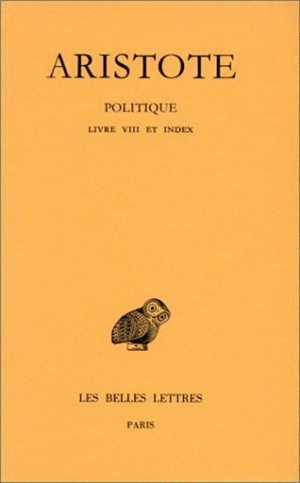 Notons que la démocratie est, pour Aristote, le gouvernement des plus pauvres, à la fois contre les riches et contre les classes moyennes. Le terme « démocratie » est ainsi pour Aristote quasiment synonyme de démagogie. (Cela peut choquer mais nos élites n’ont-elles pas la même démarche en assimilant toute expression des attentes du peuple en matière de sécurité et de stabilité culturelle à du « populisme », terme aussi diabolisateur que polysémique, comme l’a montré Vincent Coussedière dans Eloge du populisme et Le retour du peuple. An I ?)
Notons que la démocratie est, pour Aristote, le gouvernement des plus pauvres, à la fois contre les riches et contre les classes moyennes. Le terme « démocratie » est ainsi pour Aristote quasiment synonyme de démagogie. (Cela peut choquer mais nos élites n’ont-elles pas la même démarche en assimilant toute expression des attentes du peuple en matière de sécurité et de stabilité culturelle à du « populisme », terme aussi diabolisateur que polysémique, comme l’a montré Vincent Coussedière dans Eloge du populisme et Le retour du peuple. An I ?) 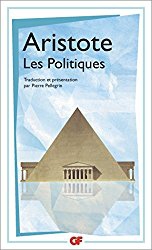 Dans la philosophie d’Aristote, on rencontre plusieurs domaines : la theoria (la spéculation intellectuelle, ou contemplation), l’épistémé (le savoir), la praxis (la pratique) et la poiesis (la production, qui est précisément la production ou la création des œuvres). Nous avons donc quatre domaines. La theoria c’est, à la fois, ce que nous voyons et ce que nous sommes. L’epistémé, c’est ce que nous pouvons connaitre. La poiesis, c’est ce que nous faisons. La praxis, c’est comment nous le faisons.
Dans la philosophie d’Aristote, on rencontre plusieurs domaines : la theoria (la spéculation intellectuelle, ou contemplation), l’épistémé (le savoir), la praxis (la pratique) et la poiesis (la production, qui est précisément la production ou la création des œuvres). Nous avons donc quatre domaines. La theoria c’est, à la fois, ce que nous voyons et ce que nous sommes. L’epistémé, c’est ce que nous pouvons connaitre. La poiesis, c’est ce que nous faisons. La praxis, c’est comment nous le faisons. L’amitié n’est pas le partage des subjectivités comme dans le monde moderne, c’est autre chose, c’est l’en-commun de la vertu. « La parfaite amitié est celle des hommes vertueux et qui sont semblables en vertu. » (Ethique à Nicomaque, VIII, 4, 1156 b, trad. Jules Tricot). Hannah Arendt a bien vu cela. Elle rappelle que l’amitié n’est pas l’intimité mais un discours en commun, un « parler ensemble » (Vies politiques, 1955, Gallimard, 1974). « Pour les Grecs, l’essence de l’amitié consistait dans le discours », écrit Hannah Arendt. Le monde commun créé par le partage de l’amitié implique un sens commun du monde et des choses, comme l’avait vu aussi Jan Patocka (Essais hérétiques sur la philosophie de l’histoire, Verdier, 1981). L’amitié contribue à la solidité de la cité. « Toute association est une parcelle de la cité » (« comme des parcelles de l’association entre des concitoyens »). Le principe de l’amitié n’est pas véritablement différent de celui de la politique. Il implique la justice et la vérité. « Chercher comment il faut se conduire avec un ami, c'est chercher une certaine justice, car en général la justice entière est en rapport avec un être ami » (Ethique à Eudème, VII, 10, 1242 a 20).
L’amitié n’est pas le partage des subjectivités comme dans le monde moderne, c’est autre chose, c’est l’en-commun de la vertu. « La parfaite amitié est celle des hommes vertueux et qui sont semblables en vertu. » (Ethique à Nicomaque, VIII, 4, 1156 b, trad. Jules Tricot). Hannah Arendt a bien vu cela. Elle rappelle que l’amitié n’est pas l’intimité mais un discours en commun, un « parler ensemble » (Vies politiques, 1955, Gallimard, 1974). « Pour les Grecs, l’essence de l’amitié consistait dans le discours », écrit Hannah Arendt. Le monde commun créé par le partage de l’amitié implique un sens commun du monde et des choses, comme l’avait vu aussi Jan Patocka (Essais hérétiques sur la philosophie de l’histoire, Verdier, 1981). L’amitié contribue à la solidité de la cité. « Toute association est une parcelle de la cité » (« comme des parcelles de l’association entre des concitoyens »). Le principe de l’amitié n’est pas véritablement différent de celui de la politique. Il implique la justice et la vérité. « Chercher comment il faut se conduire avec un ami, c'est chercher une certaine justice, car en général la justice entière est en rapport avec un être ami » (Ethique à Eudème, VII, 10, 1242 a 20).


